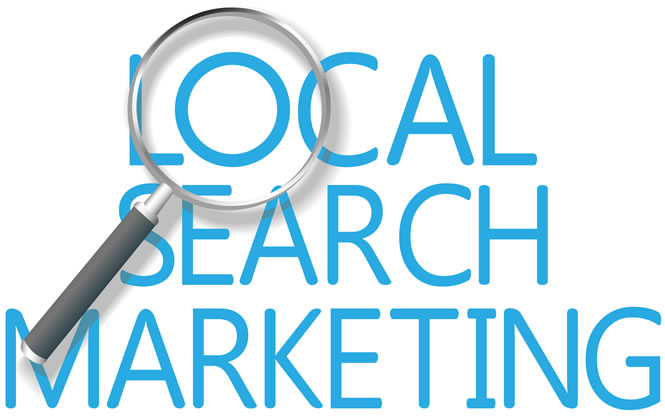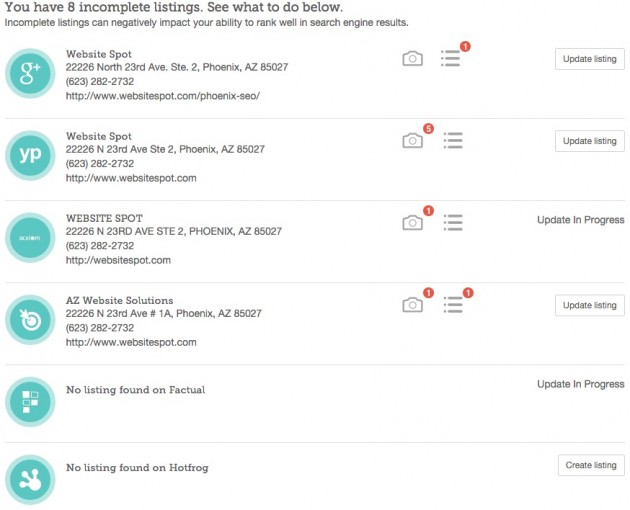How to Boost Local Search Rankings
- Ruth Ann
- November 12th, 2014

I often times get asked how to boost local search rankings. I try to clarify that local business owners may sometimes feel they're engaged in two competitions: to show up on web searches and to appear prominently on local map searches. But if a business primarily serves a local market (as opposed to an ecommerce business), it makes sense for them to focus on the local customers by adjusting their content for the local market.
Meta Data Is Important to Local Search Rankings
A recent article that we posted, five must-have plugin for WordPress, placed Yoast, which helps writers create information for metadata, at the top of the list. That's because certain metadata can directly influence rankings on Google and other search engines. Writing for RazorLight Media, John Crenshaw describes how using "killer metatitles" boosted organic (unpaid) local business listings on Google, including the #1 spot, without the benefit of paid advertising.
Crenshaw and his team researched keywords using Google Adwords and wrote titles and descriptions they concluded were likely to meet the intent of people searching for the particular services their clients provide. They did not always use keywords they thought were obvious; for example, a search for "family-friendly" activities in a certain locality yielded results that listed "kid-friendly" ones, so they they made adjustments as needed.
What Is Metadata for Local Business
Metadata for a local business is data that easily tells search engines about your business. Rather than maybe having your phone number at the top of your page, your email address on your contact us page and your address on your locations page, metadata allows you to include this on each page. It won't be displayed for your website visitors to see, it'll only be seen by search engines as they regularly crawl your website?
Here is an example of business information that's been marked up:

Schema is probably the best place to research ways to generate microdata and snippets.
Writing for Search Engine Watch, Andrew Delamarter agrees that "front-end metadata" has become very important for search. It's emphasized not only on Google but on on other platforms including Twitter Cards and Schema.org, an alliance of search providers whose tags are used by Google.

Create Content That Answers Specific Questions
Crenshaw also recommends for businesses to write content that answers questions being asked on Google. This may mean thinking about using those keywords more strategically--not just in the metatitle and description, but in the first 60 words or so. It might mean taking a long view of a business.
Think about who might be searching for the type of services your business provides and what they will type into a search engine. If you're going for Google optimization, remember that it doesn't respond to the exact keyword(s) but at the intent of how keywords are used. This can be influenced by what Google knows about the searcher; remember it tracks previous searches conducted while signed into Google or Gmail, and stores keywords gleamed from emails.
Even the time of year can influence search. Someone searching for "barbecue items" in the summer will probably get images of shiny new barbecues and a listing for recipes, particularly if s/he subscribes to a recipe service or follows Food Network on Google Plus. But the same search around Father's Day may show items more attractive to men, like a bbq tool belt or a monogrammed six-pack tub because the person is probably searching for a Father's Day gift.

Update Your Business Listings on the Web
Since most people search with Google, it makes sense to ensure your Google listing is accurate. Go to Google's business listing portal, and search for your business. You'll be asked to verify that this is your business, which is easy if Google has the correct phone number listed. If it doesn't, you can have a verification code snail-mailed to you in 1-2 business weeks. You can still make changes in the business description--where those keywords will be most helpful--but you will need a verification code to see Google's insights for your business and respond to customer reviews.
By far the best and most affordable place to manage your local listings is Moz Local. One thing that is often overlooked when it comes to improving your local search rankings is consistency across local directories. Many times businesses will change locations, names, phone numbers, etc., well Google wants those citations to be consistent. This is no small task but Moz helps with cleaning up listings but it's still going to take time removing duplicate listings with directories such as yp.com, HotFrog.com, Yahoo Local, etc..
The great thing is that you'll see links next to your incomplete listings that link directly to your listing to update it. If your business is consumer-oriented, be sure to "own" its listing on sites like Yelp. Restaurants should list on UrbanSpoon, Open Table, and Zagats, where you can create your own SEO-friendly descriptions complete with location tags.
There are many other factors regarding local search rankings but this would be my recommendation on where to start. Be sure to follow us on Facebook, LinkedIn or Twitter to get updates to this article.



